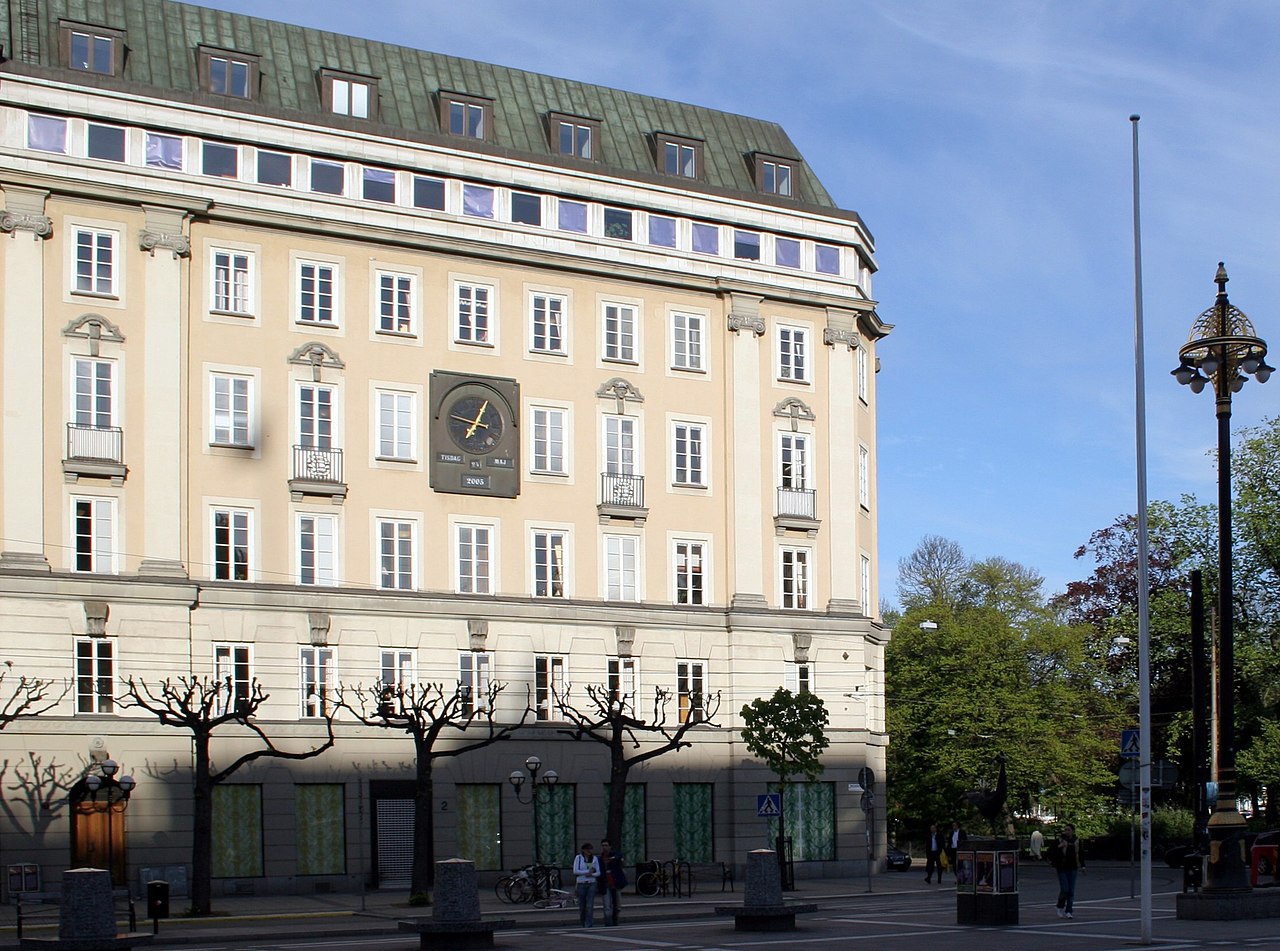Front view of the former Kreditbanken building at Norrmalmstorg in 2005
This Day In History: A bank robbery went wrong in Stockholm, Sweden, on this day in 1973, which turned into a hostage crisis. Over the next five days the hostages begin to sympathize with their captors, leading to the term "Stockholm syndrome".
The Norrmalmstorg robbery was a heist that led to 6 days where hostages were kept captive. Famously, the hostages then bonded with their captors and appeared to protect them. The seemingly paradoxical actions of the hostages led to a great deal of academic and public interest in the case, including a 2003 Swedish television film titled Norrmalmstorg, a 2018 Canadian film titled Stockholm and a 2022 Swedish Netflix television series Clark .
"Stockholm Syndrome is a condition in which people develop positive emotions and associations with someone who is keeping them captive....The origin of the term Stockholm Syndrome arose in the aftermath of a well-documented robbery which took place in Stockholm, Sweden, in 1973. Four hostages were kept captive in the bank whilst their captors had a six-day stand-off with the police. After their release, the authorities found that the hostages had developed strong emotional bonds towards their captors, and even refused to separate from them. The hostages reported that their captors treated them kindly and did not harm them. They defended the captors and refused to testify against them in court. After this, criminologist and psychiatrist Nils Bejerot who investigated the event named this phenomena Stockholm Syndrome." Source
The Stockholm Syndrome may also explain why people support government tyranny. "A disturbing aspect of a national collapse is how large portions of the population can undergo a form of Stockholm Syndrome to cope with the social and emotional stress of scarcity and deprivation. Stockholm Syndrome can be both a personal and societal phenomenon shared by a group experiencing the same crisis. The primary concern in both cases is survival. In Greece, Stockholm Syndrome appears regularly in the news to describe their responses as a nation held captive by foreign creditors and corrupt political figures. One scholar explains their compromise with the government in this way: 'When you realize there is no end to the crisis, that you can trust the promises of nobody, you seek sanctuary in that which you know. I know how to live in the crisis.' The seemingly irrational choice to remain in a perpetual state of social suffering, decreased living standards, stresses, and anxieties is the epitome of society with Stockholm Syndrome." Source
This Kindle book, 70 Forgotten Ghost Stories is now available on Amazon by clicking here...and it is only 99 cents and Edgar Allan Poe - An Exhumation is available on Amazon by clicking here...and it is only 99 cents



No comments:
Post a Comment